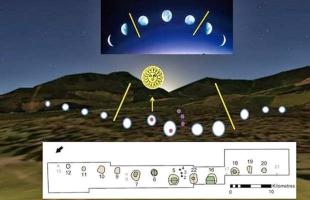Copy Link
Add to Bookmark
Report
Mead Lovers Digest #1148

Subject: Mead Lover's Digest #1148, 26 December 2004
From: mead-request@talisman.com
Mead Lover's Digest #1148 26 December 2004
Forum for Discussion of Mead Making and Consuming
Dick Dunn, Digest Janitor
Contents:
Re: Methlegins ("Michael Zahl")
Description and Tasting (Alexandre Enkerli)
Pumpkin Honey Source ("Michael Zahl")
NOTE: Digest appears when there is enough material to send one.
Send ONLY articles for the digest to mead@talisman.com.
Use mead-request@talisman.com for [un]subscribe/admin requests.
Digest archives and FAQ are available at www.talisman.com/mead.
----------------------------------------------------------------------
Subject: Re: Methlegins
From: "Michael Zahl" <mzahl@neo.rr.com>
Date: Mon, 20 Dec 2004 17:19:02 -0500
On Tue, 14 Dec 2004 Joshua A. Laff writes:
*snip*
"Usually, I keep in the herbs until the first racking if its a straight
methlegin, or second racking if I've got fruit in there (I always put fruit
in the primary, and rack after two weeks)."
- ----You mention leaving the herbs in throughout the primary and possibly
well into the secondary fermentation...
It seemed to me from what I've read in the recipes I've found, that you
simply steep the herbs in hot water for 20-45 minutes (recipes vary here),
then discard the herbs...
Is that not the case?
Second: Josh writes: "As for vanilla, I've used it once, and I used vanilla
beans. I was happy with the result, but I've never used vanilla extract."
- ---- Anyone have a good and reasonable suggestions & source for purchasing
vanilla beans? I think I'm going to try that on my next batch instead of
vanilla extract... I'm in the middle of "vanilla experiment #2" and if that
doesn't work to my liking, I'm going with vanilla bean(s) or giving up and
finding some other flavors to try! *wink*
Merry Christmas, Happy Hanukah, Blessed Yule and everything else!
Michael
------------------------------
Subject: Description and Tasting
From: Alexandre Enkerli <aenkerli@indiana.edu>
Date: Tue, 21 Dec 2004 08:15:15 -0500
Hello all,
I probably should introduce myself. I joined the list a few weeks ago
and have been lurking a bit. Low traffic but very interesting list.
Great signal to noise ratio!
I'm a talkative homebrewer from Montreal (and a native French-speaker).
Only made a single batch of mead, back in 2001, but I really like the
results. The world of mead in Quebec has been making great strides and
I happen to live close to a store where they sell a large variety of
craft-made commercial meads. In fact, I went there this Saturday and
could taste five meads from "Clos des brumes" including a madeira-like
one and a 16 year old oak-aged one. As the provincial liquor board is
on strike, people have been buying local products, including some mead,
cider (especially "cidre de glace"), and beer.
Anyway, I'm not an experienced mead lover yet but I'm learning, little
by little.
I was caught by Dan McFeeley's latest contribution to the descriptor
thread, responding to Michael Zahl's message. Yes, description is a
huge task but that's why it can best be achieved by a community (e.g.,
people on this list, think "open-source project"). That's also why it
would need some clear guidelines. Not objective guidelines. But
conventions.
And yes, talking about mead is like dancing about architecture. But at
least, it's the best way to communicate among ourselves.
> matter of compiling all that empirical evidence and then working from
> there.
And a mead-making community such as this one is the best way to collect
data points, which can then be compiled into actual data.
This implies copious notes taken by both makers and tasters. Of course,
the best method would be for different people to sample the different
meads and communicate their thoughts.
> On subjectivity and objectivity in the tasting experience:
There's certainly a lot that has been said on this and I only come to
it as a budding sensorial anthropologist (mostly on sound, though). But
it seems to me that we should avoid some of the designated pitfall of
this distinction. Subjectivity doesn't mean "lack of accuracy" and
objectivity doesn't imply "scientificity." One is from the perspective
of the perceiving subject, the other one is from the perspective of the
object's characteristics. Perception is inherently subjective and
talking about perception (setting up descriptors through communication)
is, literally, inter-subjective. As the result we'd like to achieve is
itself perceptual, an inter-subjective method is most appropriate.
In fact (social scientist creeping up), by tasting different meads and
exchanging thoughts on their characteristics, people might develop a
consensual set of descriptors. Like language, these descriptors would
be "conventional" in the sense that they'd be decided upon by a
community. No need for votes or hierarchy, they'd come up as making the
most sense for everyone. In other words, they'd be "symbolic." Much of
science is based on just that (think measuring units).
What struck me most is Peynaud's statement on so-called "perfect
pitch." I'm a musician and pitch perception is an important notion for
me. Funnily enough, I just mentioned "perfect pitch" and "relative ear"
in a discussion of beer tasting. It can be appropriate enough if you
bear with me a second... ;-)
For the record: so-called "perfect pitch" implies that the hearer does
*not* need a reference pitch to know what a frequency corresponds to.
The notion is that this person has an "absolute" hearing. Of course,
tuning systems ("scales") are really conventional and, in fact,
cultural (compare the relatively recent arrival of "equal temperament"
to Indian shrutis). But that's another set of issues.
The notion is that the person with "perfect pitch" has *not* been
trained. That "perfect pitch" is a "gift" of sorts. Of course, it's
acquired. But it's not acquired formally. What's acquired formally is
an excellent "relative ear," which is much more useful than "perfect
pitch" can ever be. (Even someone with "perfect pitch" can develop a
good "relative ear" but it requires a switch in perception that some
people don't do.)
Someone with an excellent "relative ear" can distinguish pitch very
well but does need a reference. The beauty of this is that music is
based on shifts in this reference. It's all good and well to know what
an A at 440Hz sounds like and to be able to recognize an E at 660Hz.
But it's much more important to be able to play your E in-tune when
it's in a major third interval with a C played by someone else and
which might be very far from the "absolute" reference. Of course, the A
at 440Hz reference itself is a matter of convention, having to do with
instrument-making (achieving a brighter sound than before by having
strings tuned higher).
So... What we need isn't someone with the olfactive or gustative
equivalent to "perfect pitch." After all, that person would mainly see
flaws in meads which don't come close to a given standard (people with
"perfect pitch" complain about music being out-of-tune). No! What we
need is a group of people with great relative perception and great
communication skills. Then perception can truly be inter-subjective,
which is much better than if it were objective or "absolute."
Dan also said:
> Mead tasting has much to gain from the nomenclature of winetasting
Well, mead tasting can learn from winetasting methods but mead and wine
are different enough that the same nomenclature would turn out to be
misleading, no?
On the other hand, several meadmakers use wine as their main reference
and try to emulate wine characteristics. Isn't that something we're
trying to break free of?
Sante!
AleX in Montreal
[555.1km, 62.8] ApparentRennerianCoordinates
------------------------------
Subject: Pumpkin Honey Source
From: "Michael Zahl" <mzahl@neo.rr.com>
Date: Thu, 23 Dec 2004 13:32:53 -0500
Happy Holidays Everyone!
After several inquiries have come to me privately, and after checking with
my apiary, I decided to post contact information for everyone for my pumpkin
honey source...
Floyd Marshall
Marshall Apiary
249 Smyth Road
Alliance, Ohio 44601-1560
330-821-0563
Floyd sells the bulk of his honey to a local bakery, but has additional
quantities to sell to the general public. Floyd may reserve the right,
especially toward spring, to refuse our orders in order to maintain his
relationship and ongoing demand of the bakery. Please respect that!
Currently, based on my conversation with him this morning, Floyd has around
1,000 lbs. of pumpkin honey available through August of 2005 if anyone is
interested.
Cost is $90 US for a 5 gallon (60 lb) bucket plus cost of shipping for all
his honey varieties.
Floyd mentioned that two people had contacted him recently, and he was
confused where they'd gotten his name. He now knows it was from me, and is
interested in selling to any of us from MLD.
Also, Floyd mentioned that he also had 10-15 buckets of Buckwheat honey
available to sell this season, and 40-50 buckets worth of his Dark
Wildflower honey. Floyd mentioned that his 2005 Pumpkin, wildflower and
Buckwheat honeys will be available in August, September and October of 2005
respectively.
Floyd is a small local apiary here in NE Ohio, harvesting about 15,000
pounds of honey this year. He mentioned that he usually harvests closer to
25,000 pounds, but he lost a large quantity of his bees during the 2003-2004
winter, thus his production in 2004 was lower.
I can vouch for the quality of his honey, having purchased from him the past
two seasons. I've not purchased any of his Buckwheat honey yet, but I'm
definitely considering it!
Last thing, Floyd only accepts cash, check or money orders. Smaller
quantities are available, but at higher prices per pound. If anyone has any
questions they can also contact me directly off list and I will help out to
the best of my ability.
Again Happy Holiday to everyone!
Michael Zahl
------------------------------
End of Mead Lover's Digest #1148
*******************************
























